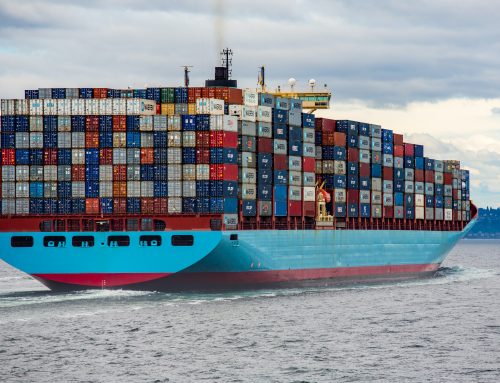In today’s interconnected global marketplace, businesses who need to navigate their goods through customs must be aware of ever-changing customs regulations, trade policies, and compliance requirements to optimize efficiency and mitigate risks.
To help businesses thrive, we’ve curated 10 expert tips from seasoned trade professionals. From active engagement in industry networks to meticulous documentation review and proactive discrepancy resolution, these strategies offer actionable insights to enhance customs compliance and streamline trade operations.
1. Active Engagement in Industry Organizations
Joining customs and trade organizations and actively participating in events is a great way to network and stay updated on regulatory changes and industry trends. These organizations often host seminars, workshops, and networking events where professionals can exchange insights, share best practices, and gain firsthand knowledge of emerging issues.
2. Regular Information Review
If you want to stay informed about evolving customs regulations and trade policies, it’s essential that you set aside the time to regularly review news releases, official updates, and publications from government agencies and industry news sources. Subscribing to newsletters and regularly visiting websites will provide a steady stream of timely information.
3. Thorough Documentation Review
It’s crucial to meticulously scrutinize all documentation related to your shipment to ensure compliance with customs regulations. Each document, including commercial invoices, packing lists, certificates of origin, shipping documentation, and the final customs declaration form must be reviewed for accuracy, consistency, and completeness. Implementing a robust documentation review can streamline the verification process and minimize the risk of compliance issues.
4. Proactive Discrepancy Resolution
If you do discover discrepancies in any of your customs documents, including details about the buyer and seller, the origin of the goods, their value, the currency of the sale, and commodity codes, make sure to resolve these inconsistencies promptly to prevent delays in the goods clearing customs. Resolving the discrepancies may involve cross-referencing information across multiple documents, verifying data accuracy with suppliers or shippers, and taking the necessary corrective actions.
5. Prioritize Compliance Training
Investing in ongoing training and/or education programs for staff members is fundamental to maintaining a high level of customs compliance expertise within an organization. Training sessions can cover topics including tariff classification, valuation methods, import/export regulations, and customs clearance procedures.
By equipping employees with up-to-date knowledge and skills, businesses are empowering them to identify compliance issues, navigate regulatory complexities, and proactively address potential risks. Regular training sessions, supplemented by relevant resources and case studies, foster a culture of compliance and continuous improvement.
6. Ensure Tariff Classification Accuracy
Accurate tariff classification is paramount for determining the correct customs duties, taxes, and regulatory requirements applicable to imported goods. It involves assigning the appropriate Harmonized System (HS) code based on the product’s characteristics, composition, and intended use. Achieving precise tariff classification requires a deep understanding of the HS code structure, product specifications, and relevant customs regulations.
Businesses should invest in training programs, reference materials, and classification tools to ensure consistent and accurate classification of goods, thereby minimizing the risk of customs compliance errors.
7. Optimize Valuation Methods
Businesses may be able to save on shipment duties by exploring different valuation methods, such as transaction value, transaction value of identical goods, or computed value, to determine the most advantageous approach for their shipments. This involves carefully considering various factors, including the declared value of imported goods, currency exchange rates, and applicable customs valuation rules.
Additionally, leveraging programs and rules provided by importing countries, such as the “first sale rule,” can help minimize declared value and reduce customs duties legally.
8. Maximize Duty and Tax Minimization Strategies
Collaborating with customs brokers and trade experts can help businesses implement effective strategies for minimizing taxes. By leveraging available programs, exemptions, and preferential trade agreements, businesses can optimize tax savings while ensuring compliance with relevant regulations.
Examples of duty minimization strategies include utilizing free trade agreements, duty drawback programs, bonded warehousing facilities, and customs duty deferral schemes.
9. Prepare Thoroughly for Audits and Inspections
Businesses should maintain organized records of all relevant documents, including commercial invoices, packing lists, shipping documents, and customs declarations. By centralizing document storage and ensuring accessibility, businesses can streamline the audit process and facilitate prompt responses to audit requests.
Additionally, fostering clear communication channels with customs authorities and proactively addressing any potential issues or discrepancies can help expedite audit procedures and mitigate compliance risks. By adopting a proactive approach to audit preparation, businesses can instill confidence in their customs compliance practices and uphold the integrity of their trade operations.
10. Utilize Expertise of Customs Brokers
Customs brokers have specialized knowledge and experience that can help a business navigate complex customs regulations and procedures. Customs brokers serve as trusted intermediaries between businesses and government authorities, offering invaluable guidance on classification, valuation, documentation requirements, and compliance best practices.
By engaging a reputable customs brokerage firm like Clearit, businesses gain access to a wealth of expertise, personalized support, and tailored solutions to optimize their customs clearance processes and mitigate compliance risks.
By implementing these expert tips, businesses can enhance their customs compliance efforts, streamline trade processes, and optimize efficiency in trade. With a proactive approach, strategic planning, and collaboration with customs brokers and industry stakeholders, businesses can navigate the complexities of customs regulations with confidence.
Ready to streamline your customs clearance process and ensure hassle-free imports? Take the first step towards efficient logistics management today by initiating your customs clearance journey with us. Let’s get your imports moving smoothly – click here to start now.
The information provided in this article is intended for informational purposes only and should not be considered as legal, business, or financial advice. Clearit makes no guarantees, representations, or warranties regarding the accuracy or reliability of the contents of this article, as they are based on our current beliefs, expectations, and assumptions, which may be subject to change. We cannot guarantee the occurrence or absence of various anticipated or unanticipated events that may impact the information presented. Neither Clearit nor its advisors or affiliates shall be held liable for any losses incurred as a result of relying on the information contained in this article.



